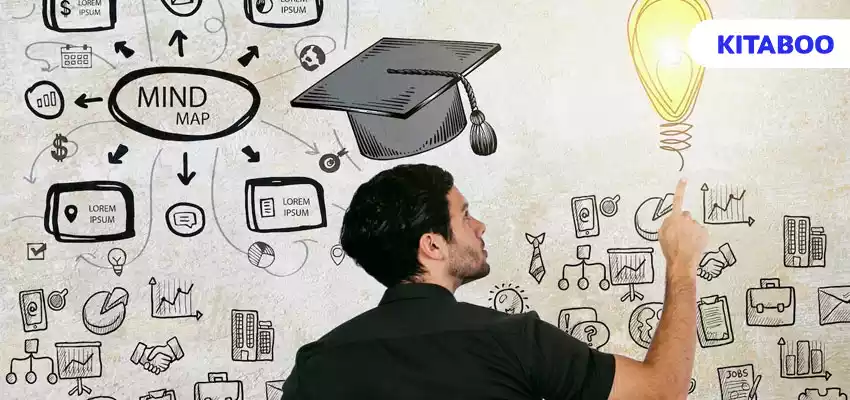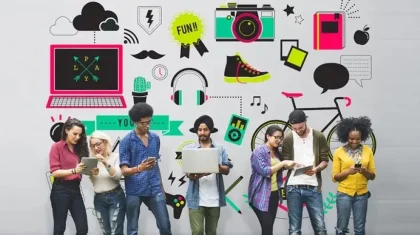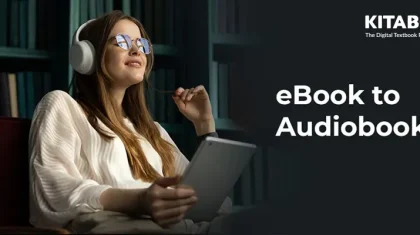
What is Experiential Learning and Why is it Important?
The world around us is in a constant state of flux, with rapid advancements in technology becoming the primary driving factor. This dynamism has altered the needs of the workforce in numerous ways, chief among them being the ability to upskill or adapt to new roles rather promptly continually.
According to LinkedIn’s 2023 Workplace Learning Report, skill sets for jobs would change by nearly 50% by 2027. Factor in the rapid rate at which AI is taking over jobs and the question arises – how does the field of pedagogy adapt to prepare students for the increasingly demanding needs of the workforce?
A possible solution could be the widespread adoption of experiential learning. This blog will dive into the details of this form of learning and explain why it’s important considering the trajectory of the workforce.
Table of Contents
I. What is Experiential Learning?
II. How Does Experiential Learning Work?
III. Why is Experiential Learning Important?
- A Better Grasp of Everything Learned
- Promote Critical Thinking and Stimulate Self-Reflection
- Mitigates Apprehension Towards Making Mistakes
- A Positive Disposition Towards Learning
IV. How Can You, as Educators, Extract the Most Out of This Learning Methodology?
What is Experiential Learning?
Succinctly put, experiential learning is a pedagogical approach that diverts from the traditional approach of Rote and Didactic methods of learning and emphasizes the role of experience instead.
Experiential learning is based on the premise that learners construct knowledge actively by engaging with the world rather than merely receiving information passively. This form of learning can be achieved in the form of hands-on experiments, field trips, internships, and simulations.
Explore: Digital Publishing Platform for Associations and Societies
However, the process of learning just doesn’t end with doing but instead goes one step further and focuses on reflecting on the experience. A process that bridges the chasm between theory and practice and helps develop understanding, critical thinking, and problem-solving skills.
Platforms like KITABOO have already taken cognizance of this necessity and provide a medium to facilitate experiential learning.
How does Experiential Learning Work?
Experiential Learning is based on the Experiential Learning Model (ELM) that David Allen Kolb, an American educational theorist, developed. According to Kolb’s theory, learning is a cyclical process that involves four stages:
- Concrete experience – the direct involvement of the learner in a situation or activity.
- Reflective observation – the examination and interpretation of the experience from multiple perspectives.
- Abstract conceptualization – the formation of generalizations, principles, or theories based on experience and reflection
- Active experimentation – the application of the concepts to new situations or problems, testing their validity and usefulness.
Each of the above stages represents a different way of engaging with and transforming experience into knowledge.
To comprehend this form of learning better, let’s break down what students experience in a chemistry class into the four stages of experiential learning.
- First, they experiment and observe what occurs. The change could be a rise or drop in temperature or a change in the color of the chemicals after they react with one another. This is the concrete experience stage.
- Then comes the reflective observation state, where students analyze and interpret the outcomes of the experiment in question. They can then deliberate among themselves to compare outcomes or identify any anomalies that occur.
- Then we come to the abstract conceptualization phase wherein based on what they have observed, they can relate to underlying concepts learned theoretically or have observed in the real world. At this phase, students may also formulate new hypotheses or questions based on their findings.
- Finally, students can then design and conduct new experiments to test the validity of their new hypotheses. This is the active experimentation stage.
Kolb firmly believed that effective learning occurs when the learning completes the entire cycle of experiencing, reflecting, thinking, and acting.
Why is Experiential Learning Important?
As touched upon earlier, the demands of the workforce are changing, and with it so should pedagogy to better prepare them to meet those demands. Experiential learning offers students the following benefits when it comes to their development.
1. A Better Grasp of Everything Learned
Purely theoretical learning memorized by repetition may not prove to be useful beyond the ability to get better grades.
However, with experiential learning, students get to relate to what is learned with real-world scenarios. The benefit of doing is not just improved retention by the ability to apply learning to the real world.
2. Promote Critical Thinking and Stimulate Self-Reflection
Unlike rote or passive learning methodologies, experiential learning engages students actively with concrete experiences. The observational aspect of this form of pedagogy allows students to analyze their actions, critically analyze outcomes, and reflect on possible improvements or changes to improve on them.
This cyclic process allows students to develop a deeper understanding of their learning and themselves, which in turn will play a significant role in their professional development down the line.
3. Mitigates Apprehension Towards Making Mistakes
Experiential learning encourages students to experiment with different methods and learn from their failures. Unlike traditional learning environments that penalize mistakes, this pedagogical method embraces them as opportunities for improvement.
As a result, students develop a growth mindset, develop confidence, and have more and learn to appreciate the diversity of perspectives and solutions that arise from trial and error.
Guide:
How to Build an eBook Store
4. A Positive Disposition Towards Learning
All of the benefits put together ultimately foster an environment that encourages students to pursue their interests and explore their curiosity without the fear of failure.
This positive disposition toward learning goes beyond just the improvements in their education but also helps students develop a positive attitude toward themselves, their peers, and educators.
How Can You, as Educators, Extract the Most Out of This Learning Methodology?
While the inherent value of experiential learning is undeniable, the effectiveness of this pedagogy hinges on specific instructional strategies employed by educators to maximize its benefits for students. Here are a few suggestions to consider:
- Make clear the expectations of the lesson at hand and define clearly the role of the student and yourself.
- Allow students to take center stage and foster a positive classroom environment for them to do so without fear.
- Take a step back and allow students to take the lead in experimenting with various solutions and alternatives to potential problems.
Provide meaningful intervention as and when required. Use KITABOO to help you create online courses and assessments that align with experiential learning principles.
Summing It Up
The future of work requires learners who can think creatively, adapt quickly, and collaborate effectively. Traditional classrooms that rely on passive and memorized learning cannot prepare students for these challenges. Experiential learning, on the other hand, offers a more engaging and authentic way of learning that taps into the innate curiosity and potential of every student.
Providing opportunities for students to experience, reflect, think, and act on real-world problems, experiential learning will help develop the essential skills and growth mindset that students will need to succeed in their professional lives in the years to come.
If you are looking to implement experiential learning in your classroom, consider KITABOO, a cloud-based digital publishing platform that can help you create, publish, and distribute learning content that aligns with your experiential learning needs.
Request a demo today to learn more about how this platform can help you as educators deliver quality learning experiences.
Discover how a mobile-first training platform can help your organization.
KITABOO is a cloud-based platform to create, deliver & track mobile-first interactive training content.



